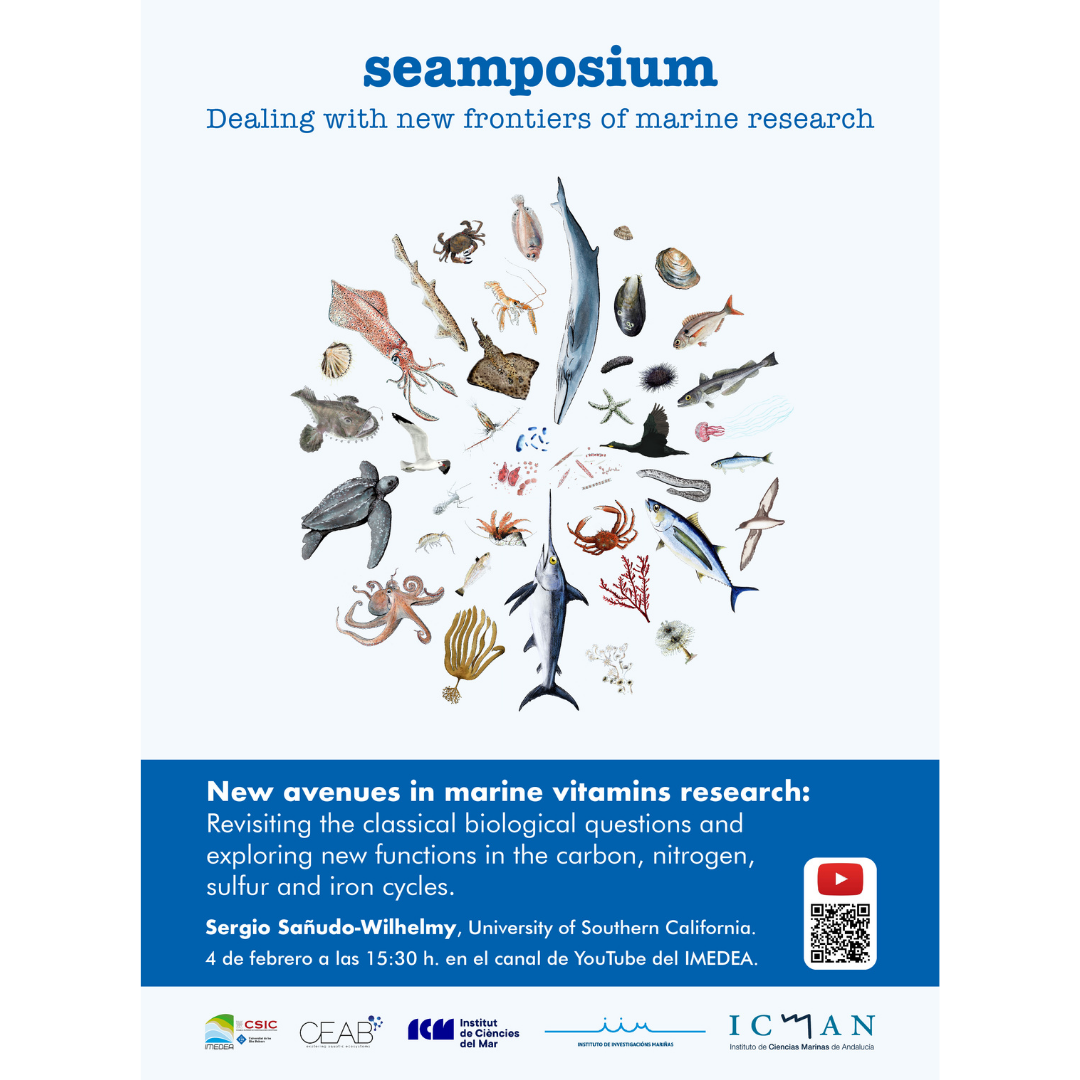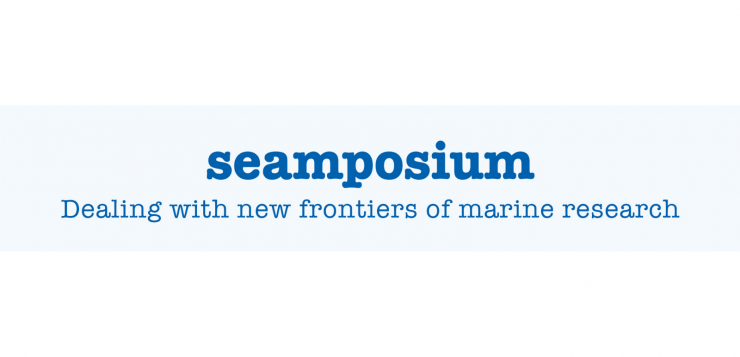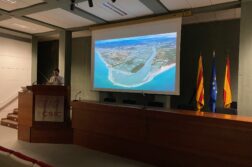On the occasion of the Decade of Marine Sciences promoted by the UN (ODS14) that aims to generate a common framework that guarantees that marine sciences fully support actions to sustainably manage the world’s oceans and seas, and thus achieve the objectives of the 2030 Agenda for Development, five CSIC marine centers have organized a joint conference cycle entitled “Seamposium: Dealing with new frontiers of marine research”.
The centers that we have joined together to organize this initiative are the Institute of Marine Sciences (ICM), the Mediterranean Institute for Advanced Studies (IMEDEA), the Institute of Marine Sciences of Andalusia (ICMAN), the Institute of Marine Research (IIM) and the Center for Advanced Studies of Blanes (CEAB).
The cycle of conferences has been created to actively contribute ….. From this event, a discussion forum will be created around a monthly seminar conducted by a recognized expert in different marine topics. The series of seminars also aims to highlight the leadership of the CSIC in the field of the Decade of Marine Sciences.
The first seminar was on February 4, with the talk “New avenues in marine vitamins research: Revisiting the classical biological questions and exploring new functions in the carbon, nitrogen, sulfur and iron cycles” by Sergio Sañudo-Wilhelmy from the University of Southern California.

Due to the current situation and to reach a wider audience, the broadcast of the talk was online and live via YouTube LIVE of IMEDEA.
We take this opportunity to tell you that on the CEAB website we will be posting the links to the different seminars as they take place.
Why a decade of marine science?
The United Nations Decade of Marine Sciences for Sustainable Development was born from the recognition that much more needs to be done to reverse the cycle of declining ocean health and create better conditions for the sustainable development of the oceans, seas and the coasts.
In the coming decades, a changing climate, a growing world population and multiple environmental stressors will have significant impacts. Science-based global change adaptation and mitigation policies are urgently needed, but neither science nor policy makers alone can achieve this.
The Decade of Marine Sciences offers a framework for strengthening connections and forging partnerships between all communities working to study, conserve and sustainably use the ocean and its resources. Through stronger international cooperation, the Decade will advance scientific research and innovative technologies to ensure that science responds to the needs of society:
- A clean ocean where sources of pollution are identified and eliminated
- A healthy and resilient ocean where marine ecosystems are mapped and protected
- A predictable ocean where society has the ability to understand current and future ocean conditions.
- A safe ocean where people are protected from the dangers of the ocean
- A sustainably harvested ocean that guarantees food supply
- A transparent ocean with open access to data, information and technologies
- An inspiring and engaging ocean where society understands and values the ocean.





